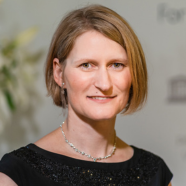
Michaela was introduced to neurobiology during her postdoctoral training in the laboratory of Annette Schenck, at Radboud University Medical Center in the Netherlands. She was hired on FP7-EU funded consortium GENCODYS to study genetic causes of neurodevelopmental disorders. When she learned that she can do it with Drosophila, the model with which she did her first experiments as an undergraduate, she found it a perfect match. She discovered that flies with genetic mutations equivalent to those found in individuals with intellectual disability (ID) frequently manifest with deficits in habituation, a conserved, fundamental form of learning that is at the base of high cognitive functions. When she focused on genes that were next to ID also associated with autism spectrum disorder (ASD), the frequency of habituation deficits was even higher – every second gene turned out to be important for habituation. Because habituation can be assessed in both flies and humans, and several studies showed defective habituation in ID and ASD individuals, she realized that it can be used as a translational readout. With this idea, Michaela has established a research laboratory at the University of South Bohemia where she studies the neuronal mechanisms of habituation to understand cognitive dysfunction in ID/ASD and identify treatment targets. She also investigates novel genetic causes of ID/ASD that include patient-specific missense variants and the effect of environmental factors on cognitive dysfunction in ID/ASD. In 2023, she received an EMBO Installation Grant and a national L’Oreal-UNESCO For Women in Science Award.
The brain is constantly bombarded by sensory stimuli. To protect itself from sensory information overload, it has to distinguish the salient, novel stimuli and filter out the familiar ones. One of the protective mechanisms is habituation, an ability to stop reacting to repeated, irrelevant stimuli. It is a very ancient form of learning that is present in every animal with a nervous system and maybe even beyond, as aneural forms of habituation have also been observed. Habituation is the first measurable form of learning that establishes during brain development and can be detected already in preterm babies. My research suggests that if habituation goes awry, it may contribute to neurodevelopmental disorders, such as ID and ASD.
ID and ASD are mostly caused by single-gene mutations. To date, we know hundreds of monogenic ID/ASD causes and many of them associate with defective habituation. I want to know how can single genetic defects result in habituation deficit, which biological pathways and neuronal processes they disrupt and turn this knowledge into treatment targets. I chose to investigate this with Drosophila because of good genetic conservation and high throughput compatibility – superior to low throughput mammalian models. Via established human habituation protocols, the knowledge gained in Drosophila can be translated to ID/ASD individuals.
I would also like to understand how habituation contributes to higher cognitive functions and clinically relevant ID/ASD phenotypes, such as sensory, learning, communication and social difficulties. For this, I collaborate with clinical researchers and human habituation experts.